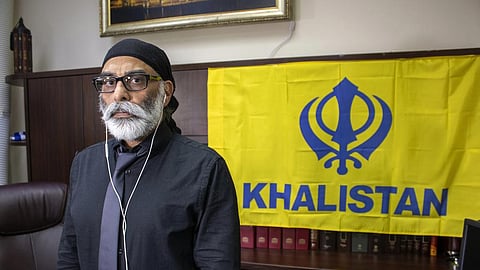

NEW DELHI: The Unlawful Activities (Prevention) Act (UAPA) Tribunal has upheld the Centre’s decision to impose a five-year extension on the ban against the pro-Khalistan group Sikhs for Justice (SFJ).
The ruling follows the Union government’s declaration in July 2024 that SFJ remains an unlawful association, citing alarming evidence of its escalating anti-national activities.
Presided over by Justice Anoop Kumar Mendiratta of the Delhi High Court, the tribunal on Friday confirmed the government’s concerns about SFJ’s deepening ties with Khalistani terror groups like Babbar Khalsa International and Khalistan Tiger Force, as well as its collaboration with Pakistan’s notorious Inter-Services Intelligence (ISI) to fuel militancy in Punjab.
The tribunal’s investigation revealed disturbing patterns of SFJ recruiting and radicalising youth via social media, financing terrorism through smuggling, and issuing death threats to prominent political figures, including the Prime Minister and Home Minister. Over a five-year period, SFJ’s unlawful activities grew significantly, with the number of FIRs against the group rising from 11 in 2019 to a staggering 122 by 2024.
Additionally, SFJ’s campaign to incite mutiny within the Indian Army and its destructive attempts to disrupt national events, including the G20 Summit, were noted as major security concerns. The tribunal also condemned SFJ’s efforts to target critical infrastructure like power plants and railways, further highlighting the group’s dangerous agenda.
The group’s exploitation of cyber platforms to spread separatist propaganda, incite violence, and disrupt public order, using automated calls and videos, was also a key piece of evidence. With the testimony of 52 witnesses, including senior police and intelligence officers, and corroborating documents and videos, the tribunal concluded that SFJ’s activities posed an undeniable threat to India’s national security.